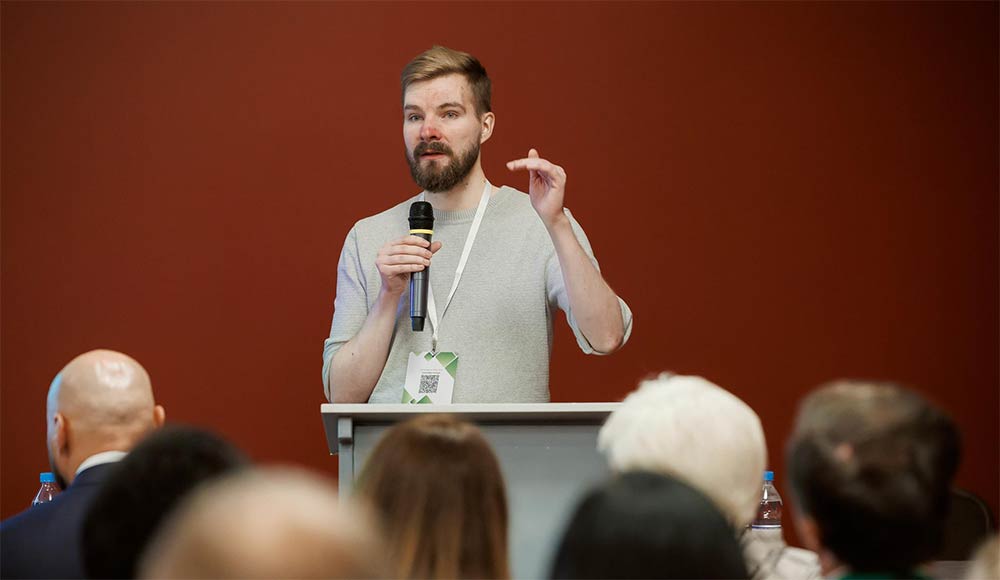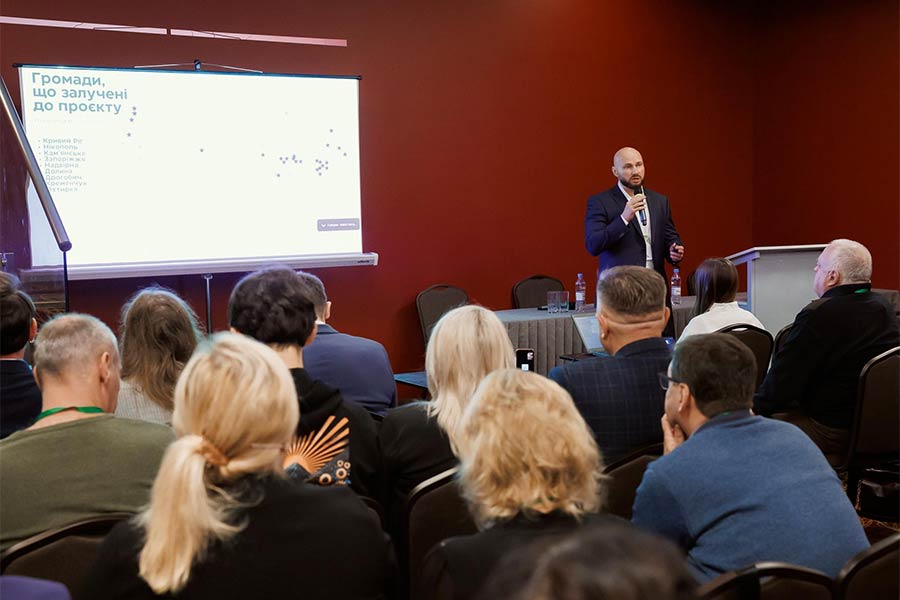On 23-24 October 2025, over 60 representatives of local governments, military administrations, NGOs, and higher education institutions gathered in Kyiv for the first in a series of workshops on just transition. The event was organised by NGOs Ecoaction and Luhansk Regional Human Rights Center “Alternative”.
This workshop is part of Ecoaction and Alternative’s work to expand the concept of just transition in Ukraine beyond coal mining towns. We aim to apply positive experiences and practices of coal communities to other mono-industrial towns facing similar socio-economic challenges in the process of decarbonisation and the devastating consequences of russia’s full-scale invasion, such as Zaporizhzhia, Kryvyi Rih, Kremenchuk, Okhtyrka, and others.
“For over 8 years, Ecoaction and Alternative have been successfully helping coal mining towns in Ukraine move towards a coal-free future and plan their post-war recovery in a “green” way. However, they are not the only communities which are need of this kind of transition and sustainable reconstruction. Therefore, it is time to apply the experience of coal communities to other regions facing similar challenges,” says Kostiantyn Krynytskyi, head of the energy department at Ecoaction.

The first day of the workshop was dedicated to getting to know each other, discussing challenges, and finding common areas for cooperation. The event was opened by Andrii Teliupa, Deputy Minister of Economy of Ukraine, who emphasised the ongoing update of the state’s industrial policy, as well as the National Energy and Climate Plan, and called on community representatives to join these processes.
International and Ukrainian experts also outlined why Ukraine’s future lies in a “green” recovery, what investors are paying attention to, and what steps communities should take now to prepare for the upcoming transition. Key speakers included representatives of the EU Delegation to Ukraine, Green Transition Office under the Ministry of Economy, International Renaissance Foundation, and East Europe Foundation.
After that, participants had the opportunity to work in groups and discuss key challenges, barriers, and opportunities for the economic, social, and energy development of their communities.
The second day was practical: Oleksandr Solontai, Chairman of the Board of the NGO Agency for Recovery and Development, conducted a training “How Communities Can Increase Their Chances of Funding Energy, Economic, and Reconstruction Projects.” He outlined what sources of support are available, what requirements donors and government programs have, and what types of projects actually receive funding.
Based on the materials collected during the workshop, we will prepare a collection of typical recommendations for communities. This document will help local councils update their regulatory and legal acts in the energy, environment, and reconstruction sectors to increase their competitiveness in attracting funding and implementing strategic projects.
This project is funded by the UK Government through the Foreign, Commonwealth and Development Office (FCDO).
The views expressed in this publication (or during this event) are those of the authors and do not necessarily reflect the official policies or positions of the UK Government.

